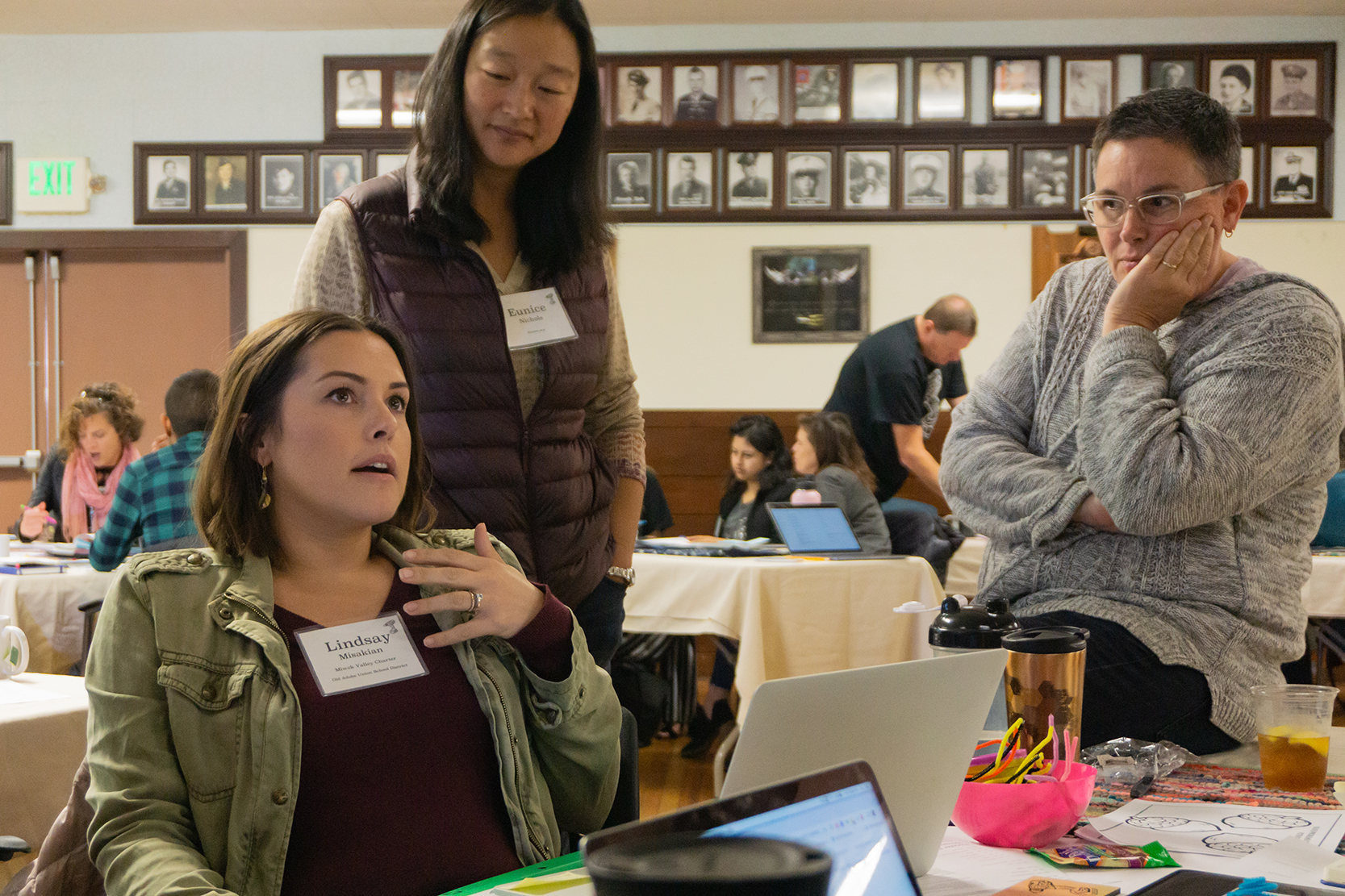Rooster Fellowship looks at ways to improve student achievement
Date: 11/20/2019
Author: Sheldon Reber
Checking assumptions about students, reflecting on classroom situations and using data to inform decisions is a focus of the Rooster Fellowship, a group of nine school teams from Sonoma County schools. School teams met in Healdsburg on Nov. 15 to share observations and discuss new ways to engage students.
 The Rooster Fellowship, a SCOE initiative, looks at ways to increase student achievement through data and proven practices such as student empathy interviews. The teams, usually four or five educators, are made up of district administrators, principals, teachers, and classified employees. Participants reported that many times one small change in instruction, introduced at a Rooster Fellowship meeting, can have a large impact on student achievement.
The Rooster Fellowship, a SCOE initiative, looks at ways to increase student achievement through data and proven practices such as student empathy interviews. The teams, usually four or five educators, are made up of district administrators, principals, teachers, and classified employees. Participants reported that many times one small change in instruction, introduced at a Rooster Fellowship meeting, can have a large impact on student achievement.
Lindsay Misakian, a sixth grade teacher at Miwok Valley Elementary Charter School in the Old Adobe Union School District, uses Rooster Fellowship practices to change the way she teaches math.
“We conducted student empathy interviews,” said Misakian. “The students mostly said they were excited and engaged during science but less interested in math. To me that seemed like a pretty fair response that I had observed myself.”
“Our curriculum is very focused on teamwork and students are expected to be a part of a four-person team,” noted Misakian. “They cared about choice so we decided to give them a choice of groups when they worked on a lesson.”
Misakian continued “The first day felt a little chaotic to me with students choosing their own groups. Some students chose to work alone, some students chose to work in pairs, and some students chose to work in teams. I saw students who needed help congregate together and I could get to them more quickly. The students who had a high level of ability in math felt happier because they were able to go at their own pace, finish early and get started on their homework.”
Mikasian remarked that the feelings around math have really shifted in her classroom which she credits to the strategies learned from the Rooster Fellowship. “I’m seeing a lot of positive shifts among my students across all demographics and ability levels in math thanks to this process.”

